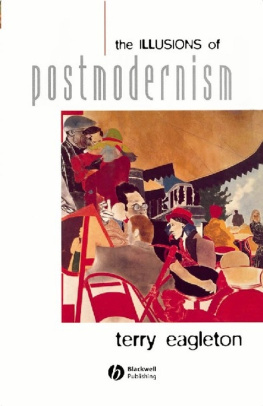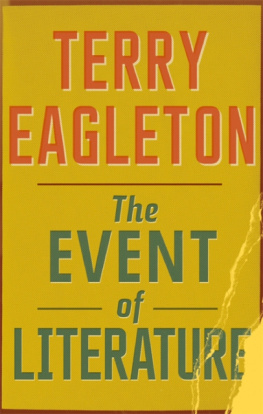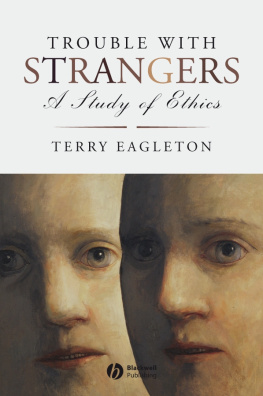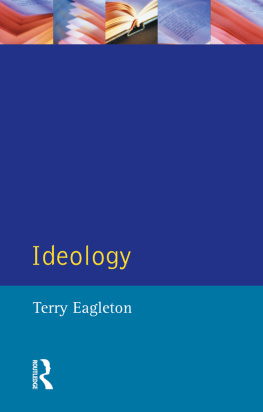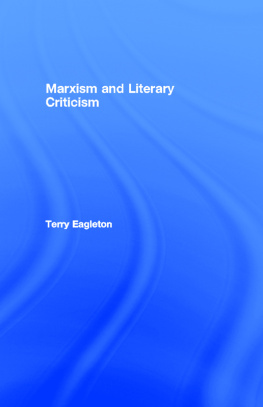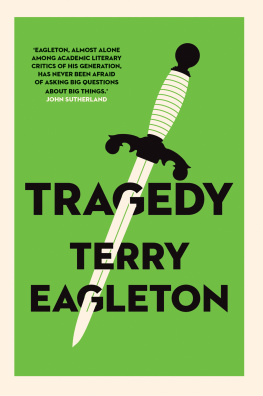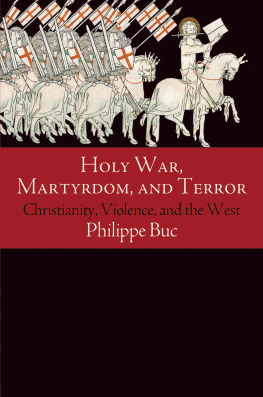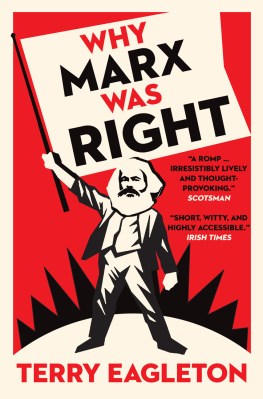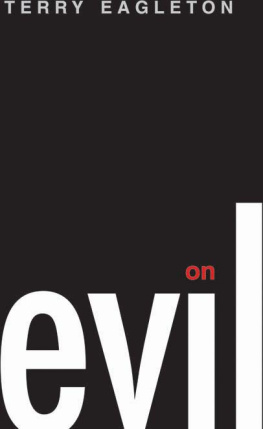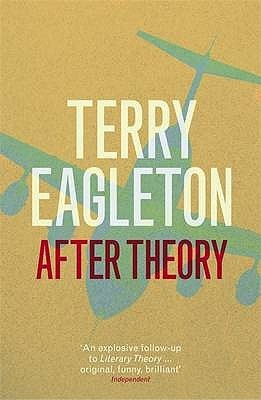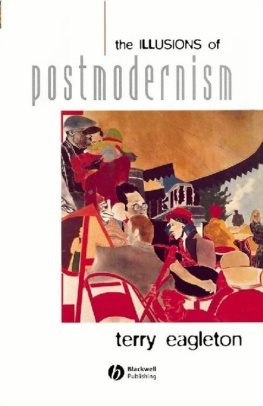Eagleton - Holy Terror
Here you can read online Eagleton - Holy Terror full text of the book (entire story) in english for free. Download pdf and epub, get meaning, cover and reviews about this ebook. City: UK;Oxford, year: 2005, publisher: Oxford University Press, genre: Religion. Description of the work, (preface) as well as reviews are available. Best literature library LitArk.com created for fans of good reading and offers a wide selection of genres:
Romance novel
Science fiction
Adventure
Detective
Science
History
Home and family
Prose
Art
Politics
Computer
Non-fiction
Religion
Business
Children
Humor
Choose a favorite category and find really read worthwhile books. Enjoy immersion in the world of imagination, feel the emotions of the characters or learn something new for yourself, make an fascinating discovery.

Holy Terror: summary, description and annotation
We offer to read an annotation, description, summary or preface (depends on what the author of the book "Holy Terror" wrote himself). If you haven't found the necessary information about the book — write in the comments, we will try to find it.
Holy Terror — read online for free the complete book (whole text) full work
Below is the text of the book, divided by pages. System saving the place of the last page read, allows you to conveniently read the book "Holy Terror" online for free, without having to search again every time where you left off. Put a bookmark, and you can go to the page where you finished reading at any time.
Font size:
Interval:
Bookmark:
Terry Eagleton


Great Clarendon Street, Oxford 0x2 6DP
oxford University Press is a department of the University of Oxford.
It furthers the Universitys objective of excellence in research, scholarship,
and education by publishing worldwide in
Oxford New York
Auckland Cape Town Dar es Salaam Hong Kong Karachi
Kuala Lumpur Madrid Melbourne Mexico City Nairobi
New Delhi Shanghai Taipei Toronto
With offices in
Argentina Austria Brazil Chile Czech Republic France Greece
Guatemala Hungary Italy Japan Poland Portugal Singapore
South Korea Switzerland Thailand Turkey Ukraine Vietnam
Oxford is a registered trade mark of Oxford University Press
in the UK and in certain other countries
Published in the United States
by Oxford University Press Inc., New York
Terry Eagleton
The moral rights of the author have been asserted
Database right Oxford University Press (maker)
First published 2005
All rights reserved. No part of this publication may be reproduced,
stored in a retrieval system, or transmitted, in any form or by any means,
without the prior permission in writing of Oxford University Press,
or as expressly permitted by law, or under terms agreed with the appropriate
reprographics rights organizations. Enquiries concerning reproduction
outside the scope of the above should be sent to the Rights Department,
Oxford University Press, at the address above
You must not circulate this book in any other binding or cover
and you must impose this same condition on any acquirer
British Library Cataloguing in Publication
Data Data available
Library of Congress Cataloging in Publication
Data Data available
Typeset by Refine Catch Limited, Bungay, Suffolk
Printed in Great Britain
on acid-free paper by
Clays Ltd., St. Ives plc, Suffolk
ISBN 0-19-928717-1 978-0-19-928717-8
13579 10 8642
To Alice,
with apologies for the world
we have brought you into
This book is not intended as an addition to the mounting pile of political studies of terrorism. Instead, it tries to set the idea of terror in what I hope is a rather more original context, one which might loosely be termed metaphysical. As such, it belongs to the metaphysical or theological turn (or full circle) which my work seems to have taken in recent years, one welcomed by some but looked upon with alarm or exasperation by others. As far as the exasperation goes, I would point out to my friends on the left that the politics implicit in this rather exotic talk of Satan and Dionysus, scapegoats and demons, are more, not less radical than much that is to be found in the more orthodox discourses of leftism today.
In any case, terrorism itself is not political in any conventional sense of the term, and as such poses a challenge to the lefts habitual modes of thought. The left is at home with imperial power and guerrilla warfare, but embarrassed on the whole by the thought of death, evil, sacrifice, or the sublime. Yet these and allied notions, I believe, are quite as germane to the ideology of terror as more mundane or material conceptions. Like a number of my recent books, then, this one seeks to extend the language of the left as well as to challenge that of the right. Perhaps this is partly because I live in a country which used to teach politics and metaphysics together in its national university, and in which it has not been unknown for hairdressers and bus drivers to have a passing acquaintance with notions of natural law or theories of just warfare.
The genealogy I trace for terrorism, all the way from ancient rites and medieval theology to the eighteenth-century sublime and the Freudian unconscious, may look not only arbitrary but perversely unhistorical. It is the former in the sense that it is not, of course, the only pre-history of the phenomenon that could be sketched; it is the latter, I think, only in a somewhat impoverished understanding of the historical.
Some of the material in the book was delivered in different form as the Sir D. Owen Evans Lectures at the University College of Wales, Aberystwyth in 2003, and as the Alexander Lectures at the University of Toronto in 2004. I am deeply grateful to my hosts in both establishments for their kindness and hospitality. As always, I am also greatly indebted to the wisdom and friendship of my editor Andrew McNeillie.
T.E.
Dublin
2005
Invitation to an Orgy
LIKE many a supposedly antique phenomenon, terrorism is in fact a modern invention. As a political idea, it first emerged with the French Revolutionwhich is to say, in effect, that terrorism and the modern democratic state were twinned at birth. In the era of Danton and Robespierre, terrorism began life as state terrorism. It was a violence visited by the state on its enemies, not a strike against sovereignty by its faceless foes.
The word terrorist emerges in the context of such French Revolutionary terms as Girondist, and it is suggestive, if un-historical, to read it as a satirical send-up of them. The ist suggests, sardonically, a sort of philosophybut one which comes down to spilling guts and hacking off heads, and thus a wholly bankrupt kind of theory. To be called a terrorist, then, is to be accused of being cleaned out of ideas, conjuring a grandiloquent doctrine instead out of the simple act of butchery. It is rather like calling someone a copulationist, implying that their high-sounding notions are just a fancy cover for fornication. The word may be intended to make you sound pretentious as well as sinister. As such, it is dangerously misleading. Terrorists, whether of the Jacobin or modern-day variety, whether Islamic fundamentalists, Pentagon promoters of shock and awe, or conspiracy theorists huddled in the hills of Dakota, are not in general bereft of ideas, however malign or preposterous their ideas may be. Their terror is intended to help execute their political visions, not substitute for them. And there is a complex philosophy of political terror in nineteenth- and twentieth-century Europe, which can by no means be reduced to simple thuggery. The word terrorist is an underestimation.
In a broader sense of the word, to be sure, terrorism is as old as humanity itself. Human beings have been flaying and butchering one another since the dawn of time. Even in a more specialized sense of the term, terrorism runs all the way back to the pre-modern world. For it is there that the concept of the sacred first sees the light of day; and the idea of terror, implausibly enough, is closely bound up with this ambiguous notion. It is ambiguous because the word sacer can mean either blessed or cursed, holy or reviled; and there are kinds of terror in ancient civilization which are both creative and destructive, life-giving and death-dealing. The sacred is dangerous, to be kept in a cage rather than a glass case. The idea belongs to a reflection on the enigma of the linguistic animal: how come that its life-yielding and death-dealing powers spring from the same source, which is to say from language? What is this self-thwarting animal which ends up being persecuted by its own creative powers?
The affinity between terror and the sacred may sound peculiarly, even offensively irrelevant to the terrorism of our own time. There is nothing especially saintly about tearing someones head from their shoulders in the name of Allah the All-Merciful, or burning Arab children to death in the cause of democracy. Yet it is not wholly possible to understand the notion of terror without also grasping this curious double-edgedness. Terror begins as a religious idea, as indeed much terrorism still is today; and religion is all about deeply ambivalent powers which both enrapture and annihilate.
Font size:
Interval:
Bookmark:
Similar books «Holy Terror»
Look at similar books to Holy Terror. We have selected literature similar in name and meaning in the hope of providing readers with more options to find new, interesting, not yet read works.
Discussion, reviews of the book Holy Terror and just readers' own opinions. Leave your comments, write what you think about the work, its meaning or the main characters. Specify what exactly you liked and what you didn't like, and why you think so.

